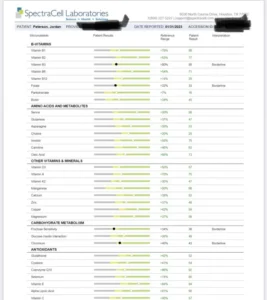I’m going to keep this EXTREMELY brief, and very simplified. If it’s too simplified for people’s liking let me know, but I don’t want to bog people down with information. Comment with thoughts, suggestions, other studies you’d like to know about, or more areas to read about the china study.
What is The China Study?
When discussing an all meat diet, I’ve heard The China Study brought up numerous times. I wouldn’t say all of the science in it is bad, but the author makes conclusions you can’t make, generalizes, and leads readers to the WRONG conclusion.
The China Study: Revised and Expanded Edition: The Most Comprehensive Study of Nutrition Ever Conducted and the Startling Implications for Diet, Weight Loss, and Long-Term Health
Where did it go wrong?
- Campbell links “animal protein” to cancer and autoimmune disorder’s. The studies in the book linking “animal protein” to disease, are done based on casein (a protein in cow’s milk). He generalizes and instead of being clear “casein causes…..” he writes that “animal protein causes….” This is wrong. Casein and meat are NOT the same AT ALL. He discusses casein causing Type 1 diabetes but doesn’t talk about gluten’s role in Type 1 diabetes, or fructose’s role in insulin resistance, or sugars role for that matter. The main mistake he makes, that caused God knows how much suffering, is lumping casein and meat together.
- Campbell doesn’t look into carb consumption or sugar consumption. He omitted information in order to get the result he wanted. This book could easily have been just as popular if he didn’t omit key information, and was specific that he was talking about casein (not animal protein in general).
- He suggests limiting cholesterol food to ZERO. We’re slowly finding out that cholesterol actually isn’t bad for you, and suggesting people eat zero of it is ridiculous. We need cholesterol to form our steroid hormones, process vitamin D, and form cell membranes.
Where did it go right?
Casein is linked to cancer and autoimmune disorders. I suggest avoiding dairy almost as much as I suggest avoiding gluten. But lumping dairy in with meat is a huge mistake. They are not the same.
What we can take away from it:
Be careful what you read. Most studies on diet are done badly and lead people to the wrong conclusions. Casein (dairy) should be avoided.
Further reading on The China Study:
Chris Kresser wrote a blog post about it, and it’s really worth reading. It covers way more than this oversimplified post.
Some readers have mentioned Michael Greger and nutritionfacts.org. This is one of the (many) reasons I think that doctor is a crook. He’s looking for anything that supports what he believes instead of looking for the truth. Compare what he writes to what Chris Kresser writes about The China Study and see for yourself. He lists The China Study as some of the evidence of plant-based diet without actually looking into the science behind it.





Dr. Shawn Baker finally released his lab results:
https://www.youtube.com/watch?v=aQ6joer3raU&feature=youtu.be
Hi Mikhaila,
I am originally from SA and the meat is AGrade because of all the farms. Now I live in China and I find most of the meet in China is disgusting and really bad quality, especially in the rural areas. The beef here is so expensive and the only chicken you get at a restaurant is on the bone. I have had to cut out pork too. The meat here is definitely not the same as abroad and they fill it all with antibiotic, I am not arguing against your information at all, but it’s really hard to think of the exclusion diet when the meat has been making me feel ill here aswell. I am moving to a bigger city soon and will now starting to only use imported meat and see if it will help. Thanks for a great blog!
You completely skip over the fact that the World Health Organization, as of 2015, now lists processed meats as a type 1 Carcinogenic, and red meat as a type 2A. Each 50g of either, increases risk of colon cancer by 17-18%.
This is a silly attempt to debunk the China Study. We have more research since this book, that suggests animal proteins do in fact cause cancer, increase risk of heart disease, dementia ETC.
Bias article without any attempt to acknowledge the more recent meta-studies.
Dude… the WHO still suggests we reduce fat and salt and eat grain. Have fun with that diet.
Yeah, anyway, TC Campbell is a big time cherry picker. Read “The Low Carb Fraud” and make what you can from that . . . I dare you . . . Also, is production methodology taken into account with WHO’s recommendations? Do they account for fermented nitrate-free sausage in say Holland or Austria for eg vs stuff with sawdust and plant-based transfats in it from some other nation where the authorities aren’t sticklers? Do they count so called “red meat” with a balanced 1:1 ratio of Omega 3 to 6 fat molecules? Likely, the Masai prior to cheat wheat and sugar would cause their recommendation some trouble. As Gary Taubes says on these issues: why can’t they do some kind of experiment to settle it? These blanket statements are a core problem that, as the blog’s owner has mentioned cause suffering. I’ve run similar academic studies. Whether they can prove anything through the web of politics and dollar chasing is dubious at best. Regardless of dogma, this stuff won’t be mastered for another generation or two, I think, as I believe entities like the AHA or WHO are missing WAY too many factors when they make these statements (ie I don’t believe them or believe that hoofed beast or sausage is the equivalent of a baseball made of plutonium or a pack a day, sorry!)
So, it may not be casein that is the problem. It’s more complex than that. Turns out that there are different types of cow milk, from different breeds, that give different results.
“A1 Vs. A2 Cows: What’s the Difference?
The type of proteins in milk, and the proportion of various proteins, varies depending on the breed of cow and the type of animal (sheep, goat, cow, etc.).
One of the major proteins in cow’s milk is casein, the predominant variety of which is called beta-casein. In older breeds of cows, such as Jersey, Asian and African cows (called A2 cows), the beta-casein contains an amino acid called proline.
In newer breeds of cows like Holstein (A1 cows), however, the proline has mutated into an amino acid called histidine.
This is important because beta-casein also contains an amino acid called BCM-7, which is a powerful opiate linked to negative health effects. Well, the proline that exists in A2 cows has a strong bond to BCM-7, which helps keep it out of the cows’ milk. The histidine in the newer A1 cows, however, has a weak hold on BCM-7, which allows it to get into the milk, and also into the people who drink the milk.
So the theory goes that by drinking milk from A1 cows, which are the predominant cows used for dairy products in the United States, you’re exposed to BCM-7, which has been linked to:
Neurological impairment, including autistic and schizophrenic changes
Type 1 diabetes
An impaired immune response
Autoimmune disease
Heart disease””
There you go.
Oh.. and raw dairy is best, in either case. Pasteurization mutates milk into a non milk product.
Leave a comment